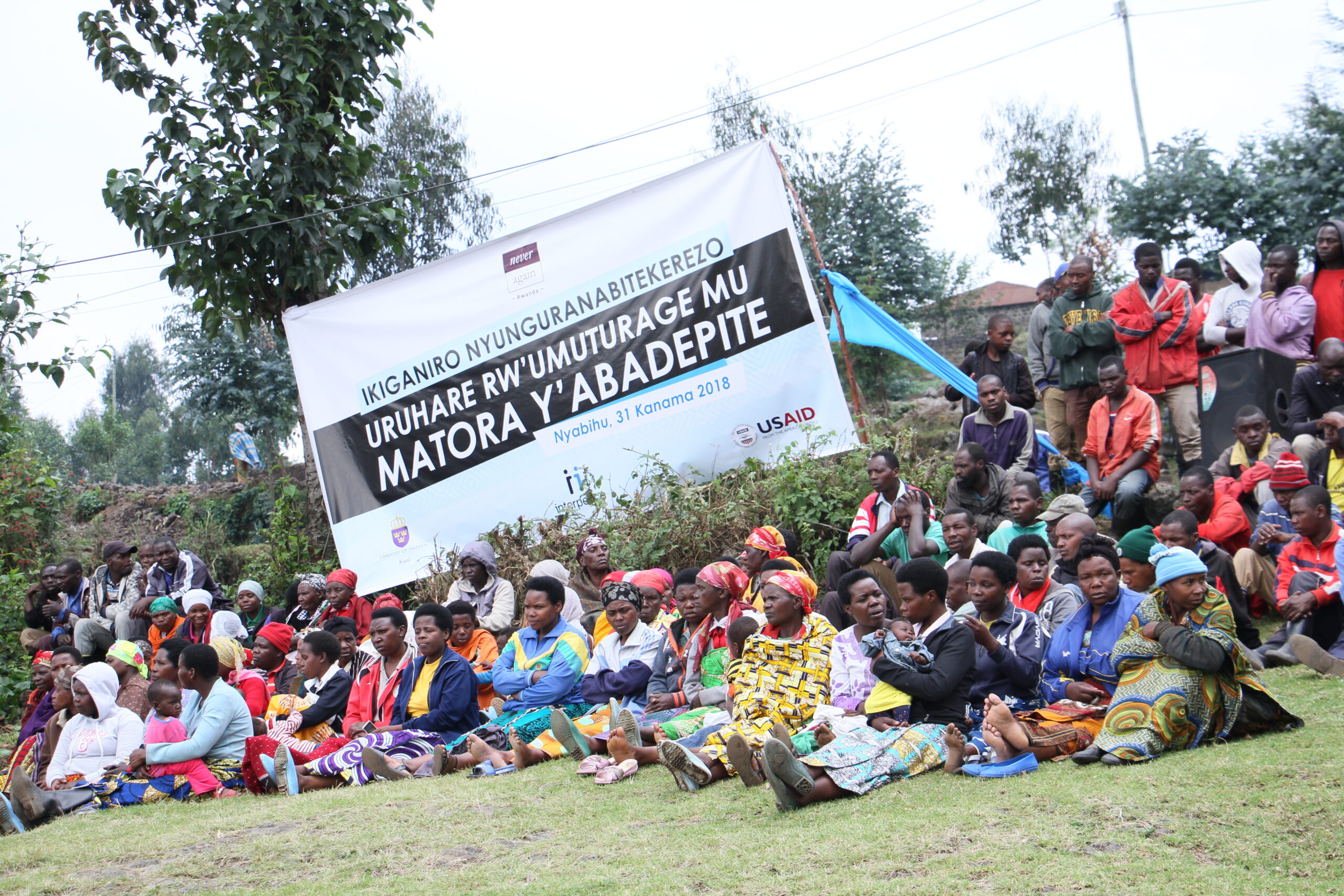It is essential that the electorate and the citizenry are well conversant with the mandate of the parliament vis-à-vis other branches of government. It is also of utmost importance that information of parliamentary processes is more accessible to citizens so as to improve parliamentary accountability.
Following this principle, Never Again Rwanda on August 31, 2018, organized a community radio dialogue in Gasizi cell, Mukamira Sector in Nyabihu District, with an aim to enable citizens to suggest and voice their wishes and priorities to be considered by lawmakers for the next five-year term in office.
In an open community radio dialogue on the role of parliamentarians, various issues were tackled and these include: policy formulation and law-making, holding government to account and promoting the interests of their constituencies. The platform was also used as a safe space for citizens to voice their opinions on what they really think new candidates in parliament can do better in their upcoming office tenure as citizen representatives.
Eric Nsengiyumva, one of the local residents commended the efforts of the outgoing parliament, who advocated for the development of their area, citing the road connecting Busogo-Musanze and Mukamira-Nyabihu under construction, Gasizi health post, schools, electricity, and water all around our community among other facilities. However, Marie Chantal Mukeshimana raised the issue of miscategorization in Ubudehe categories for some citizens which is considered an injustice that ought to be revised by the next elected law-makers. Jean Claude Nshimiyimana also requested the incoming parliament to regulate the price at the market of Irish potatoes in order to raise the living standards of the farmers.
On the other hand, the Head of Programs at Never Again Rwanda, Eric Mahoro reminded citizens of Nyabihu District to understand their roles and responsibilities in the electoral process so as to exercise their democratic rights of choosing the right representatives.
In working towards communicating with citizens and providing them with the access to information about how the Chamber of Deputies operates, recourse was made to various means including individual and collective visits by Deputies and Committees across the country.


